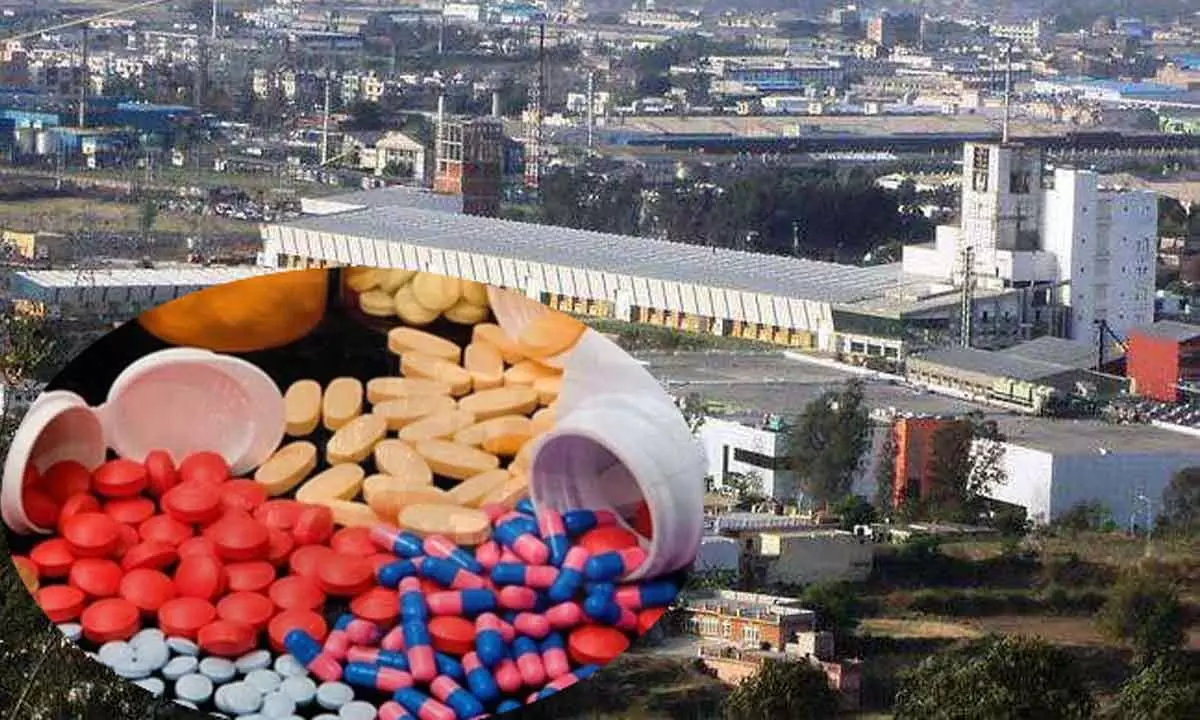Govt should expand scheme for promotion of bulk drug parks to other states as well
Given the geo-political situation on the India-China border, the government should further strengthen the measures for drug security in the country
image for illustrative purpose

Union Minister for Chemicals and Fertilisers Dr Mansukh Mandaviya has recently stated that there is no proposal to expand the 'Scheme for Promotion of Bulk Drug Parks' to other States. In a statement in response to a query by two Members of Parliament (MPs) in Lok Sabha on the details of the scheme and whether the government is planning on expanding the said scheme to other States, the Minister categorically said, "There is no proposal to expand the scheme for Promotion of Bulk Drug Parks to other States."
The Department of Pharmaceuticals (DoP), which is part of the Union Ministry for Chemicals and Fertilisers, is the implementing agency of the Bulk Drug Parks scheme to facilitate setting up of three bulk drug parks in the country. For the three parks, the DoP had received proposals from 13 States which include Uttar Pradesh, Tamil Nadu, Telangana, Karnataka, Maharashtra, Gujarat, Madhya Pradesh, Rajasthan, Punjab, Haryana, Himachal Pradesh, Andhra Pradesh, and Odisha. The total financial outlay of the scheme is Rs 3000 crore and the tenure of the scheme is from 2020-21 to 2024-25. The financial assistance by the centre is subject to a maximum limit of Rs1000 crore per park or 70 per cent of the project cost of common infrastructure facilities (CIF), (90 per cent in case of North Eastern States and Hilly States), whichever is less. After evaluation of the proposals, Andhra Pradesh, Gujarat and Himachal Pradesh were given the final approval in October-November 2022 for creation of CIF in the proposed Bulk Drug Parks in these three States, under the scheme. The respective State Implementing agencies (SIA) have indicated completion of these projects within the next 24-28 months.
The Minister's statement that there is no proposal to expand the 'Scheme for Promotion of Bulk Drug Parks' comes at a time when there has been demand from various states for extension of the scheme to support bulk drug production in the country, in order to make the country self-sufficient in terms of raw material production in tandem with the formulations manufacturing. Apart from various states and industry associations, a Department related Parliamentary Committee had also earlier last year opined that three bulk drug parks are not adequate to meet the production needs of bulk drugs in the country, particularly keeping in view its status of "World Pharmacy". The Committee in its report, which was tabled in Parliament, felt that since there is vast potential for export in the pharma sector, it recommended that more Bulk Drug Parks may be set up in all the aspiring states and the Ministry of Finance may be approached for requisite budgetary allocation for the purpose. In reply to the Parliamentary Committee's report, the DoP informed that after implementation of the scheme for the three bulk drug parks and evaluation of performance thereof, "a considered view may be taken to assess need for expansion in view of prevailing situation in terms of level of drug security achieved, proliferation of parks/clusters, adequacy of market incentives and incentives given by respective State Governments, etc."
Of course, as the Minister stated in Parliament, by launching the Bulk Drug Parks scheme, the government wanted to minimize the country's dependence on imports and to give fillip to indigenous manufacturing. It may be noted that imports of bulk drugs and drug intermediates from China to India have increased by around 20 per cent in the fiscal year 2021-22, and accounted for almost 66 per cent of the total imports during the year. The DoP is implementing the Scheme for Promotion of Bulk Drug Parks to make the country self-reliant in bulk drugs (active pharmaceutical ingredients /key starting materials and drug intermediates) and keeping in mind the strategic objectives of drug security for the country, which is an intrinsic part of the efforts of government of India towards drug security. The scheme will create a robust ecosystem for the manufacturing of bulk drugs in the country and also will reduce the manufacturing cost significantly, by providing easy access to standard testing and infrastructure facilities. This scheme is expected to encourage domestic manufacturing of bulk drugs to reduce import dependence and to establish a dominant position in the global market. Given the geo-political situation on the India-China border, the government should further strengthen the measures for drug security in the country. It should seriously consider expanding the 'Scheme for Promotion of Bulk Drug Parks' to other States.
(The author is a freelance journalist with varied experience in different fields)

